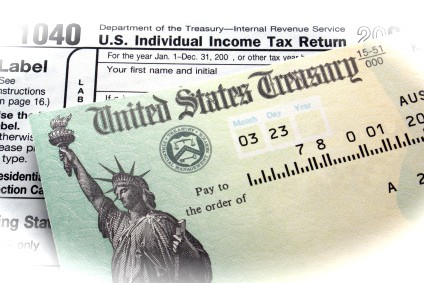 Tax season is here again. Everyone would love to avoid paying a hefty amount of money in taxes, don’t you? But how?
Tax season is here again. Everyone would love to avoid paying a hefty amount of money in taxes, don’t you? But how?
If you are interested in finding out ways on how you can lower your tax bill, read these smart tax saving tips. By keeping these things in mind, not only will you be able lower your tax bill, but it will also help ensure that you will get the maximum tax refund due to you.
Here are some helpful tips:
Take Advantage of Tax Credits
Donate to charity
Contribute to your IRA and other retirement plans
Include Medical Expenses
File Your Tax Returns on Time
1. Take Advantage of Tax Credits
Tax credits can increase a refund or reduce a tax bill. Usually, credits can only lower a tax liability to zero. But some credits, such as Earned Income Tax Credit (EITC), child tax credit, Recovery Rebate Credit and first-time homebuyer credit, are refundable. Therefore, they can make the difference between a balance due and a refund.
Although some credits are available to people at all income levels, others have income restrictions. These include the EITC, Recovery Rebate Credit, saver’s credit, first-time homebuyer credit, education credits and child tax credit.
Generally, if you qualify for a credit, you can claim it whether or not you itemize you deductions. For more information contact the Internal Revenue Service.
Charitable donations are usually 100% deductible. However, in order for your donation to be tax deductible, it should meet these requirements:
- Must be made to qualified organizations
- Should be part of your itemized deductions on Form 1040, Schedule A
It is advisable to keep a record of your contribution of cash, check, or other monetary gifts, either a bank record or a written communication from the charitable organization, which includes the date and amount of the contribution as well as the name of the organization for documentation purposes. Click here for more information.
3. Contribute to your IRA and other retirement plans.
Contributing to your Traditional IRA account can reduce your taxable income, as it is tax deductible. However, you have to meet the contribution deadline in order to qualify, which is usually April 15.
Please note that you can only take a full deduction if neither you nor your spouse was covered for any part of the year by an employer retirement plan.
These are the dollar limits for IRA contributions for tax years 2009 and 2010:
- $5,000 ($6,000 if you are age 50 or older), or
- 100% of your compensation.
Take note that this limit may be increased to $8,000 if you participated in a 401(k) plan maintained by an employer who went into bankruptcy in an earlier year.
If you have an employer-sponsored retirement fund, make your contribution to save money on your income taxes. Doing this will lower your income tax as your employer will already deduct your contribution from your gross pay, therefore the basis for your income tax will be lower.
To get more details on this type of deduction, please read IRS Publication 590
Itemizing your deduction on Form 1040, Schedule A, may allow you to deduct your medical and dental expenses. This includes expenses you paid for medical and dental care for yourself, your spouse, and your dependents.
Medical expenses include insurance premiums paid for accident and health or qualified long-term care insurance. However, you may not deduct insurance premiums paid by an employer–sponsored health insurance plan unless the premiums are included in Box 1 of your Form W-2.
Please note that you can deduct only the amount of your medical and dental expenses that is more than 7.5% of your adjusted gross income.
For more information, refer to IRS Publication 502 , Medical and Dental Expenses.
5. File Your Tax Returns on Time
Don’t forget, April 15 is the tax deadline for Individual Tax Returns. Be sure to send in your tax returns by then to avoid any penalties. If you think you won’t be able to meet this deadline, it is important to file for an extension. However, keep in mind that extensions are granted depending on your situation. It will be wise to consult your accountant or call the Internal Revenue Service for more information.
Please note that these are only for informational purposes. Please be sure to consult your tax advisor or financial planner for help and advise when preparing your tax returns.
If you are a senior and need help in preparing your taxes, read Tax Preparation Tips For Seniors, to get important tax tips that will help make your tax preparation easy and simple.
Copyright © 2008-2010 SeniorCareHomes.com. All Rights Reserved.
NOTE: If you would like to use this article on your webiste or your blog, you MUST include the following immediately below the article.
 About the Author: Catharine D. Allado is a Senior Care Expert and the COO of SeniorCareHomes.com – A trusted and comprehensive online directory of Senior Care Homes such as Assisted Living, Nursing Homes and other types of Senior Housing in California, Florida, New York, Arizona and the rest of the United States. SeniorCareHomes.com also provides FREE Assisted Living options to help seniors and families find the best Senior Housing on the planet!
About the Author: Catharine D. Allado is a Senior Care Expert and the COO of SeniorCareHomes.com – A trusted and comprehensive online directory of Senior Care Homes such as Assisted Living, Nursing Homes and other types of Senior Housing in California, Florida, New York, Arizona and the rest of the United States. SeniorCareHomes.com also provides FREE Assisted Living options to help seniors and families find the best Senior Housing on the planet!
Related Articles:
- Tax Preparation Tips For Seniors
- How To Choose A Tax Preparer
- Maximizing Your Social Security Benefits
- Debt-Free Living Tips
- Money Saving Tips
- Helping Seniors with Daily Money Management
- Simple Debt Management Strategies for Seniors
Other SeniorCareHomes.com Helpful Links:
- Seniors Online Community & Discussion Forum
- Senior Care Facility Search
- Senior Facility Registration
Catharine “Kate” is a Certified Administrator for Residential Care Facilities for the Elderly (RCFE) and an Expert Senior Care Advisor. Kate’s grandmother battled Alzheimer’s Disease and Kate personally understands what millions of families are going through. Kate and her team are very passionate in empowering Seniors and their families by providing them with the Best Available Senior Care Options based on Senior’s care needs, preferred location and family’s budget.


